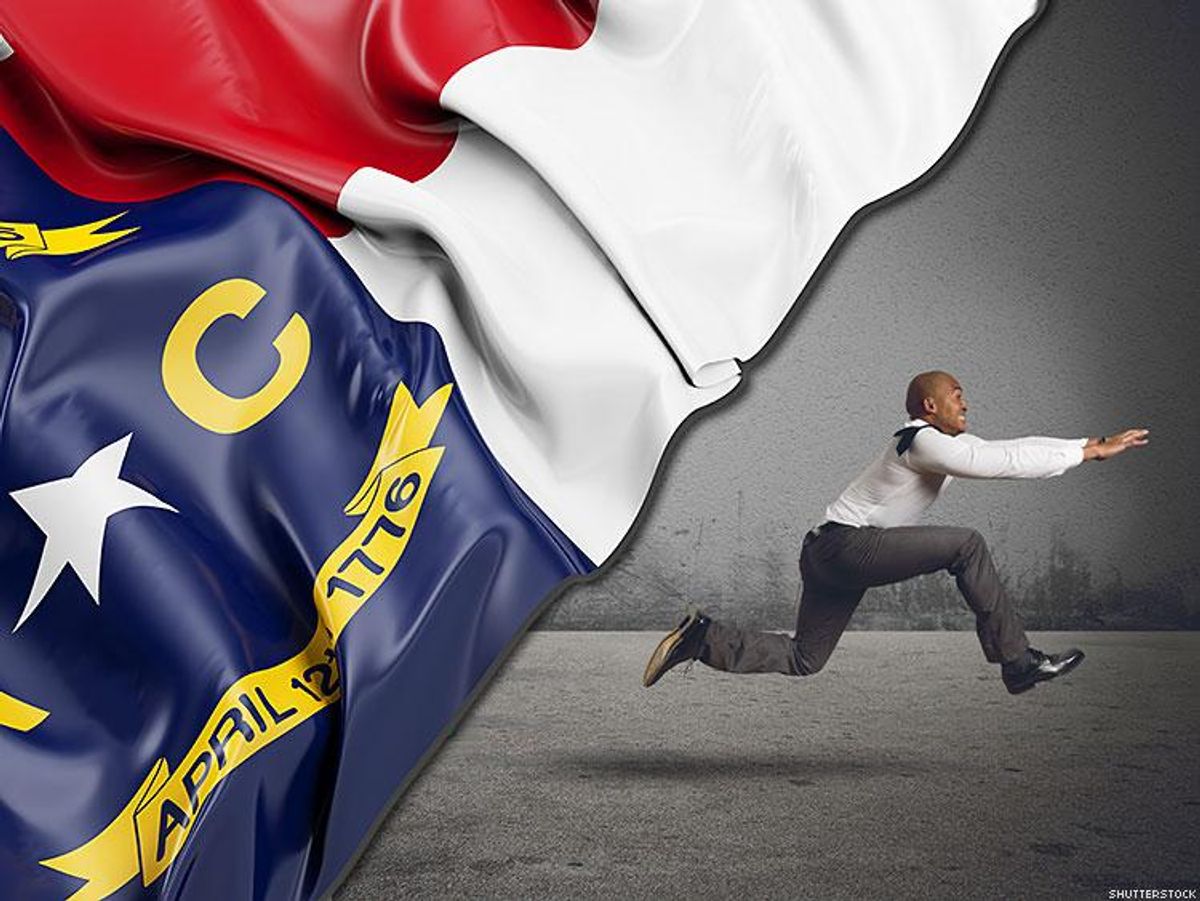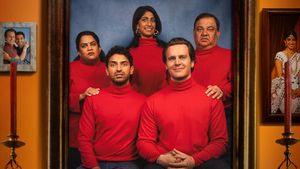All Rights reserved
By continuing to use our site, you agree to our Private Policy and Terms of Use.
You've heard all this by now about the treacherous House Bill 2 that North Carolina passed this March: It's known as "the bathroom bill" because it reduces transgender people to arbitrary gender markers, but it also affects other members of the LGBTQ community who've been persecuted in the workplace. HB2 is also in direct conflict with civil rights protections, Title IX for college campuses, and even the ability to increase living wages.
So, yeah! Boycott! Flee North Carolina in a mass exodus. Leave Gov. Pat McCrory in his own broken state! Don't feed any money into the North Carolina economy! Make sure North Carolina is burned to the ground!
Wait ... actually ... no. Don't do that. Don't do any of that.
Contrary to popular belief, LGBTQ people exist in North Carolina. Around one in 40 people in North Carolina are a part of the LGBTQ community, and we're the ones who are being affected personally every day by this law. And most of us don't have the resources or money to leave.
According to the National Transgender Discrimination Survey, transgender people are four times as likely to have an overall income under $10,000. We're twice as likely to be unemployed. One in five reported being homeless at some point in their lives. These are the people being abandoned when you haphazardly boycott the entire State. Poor, working class queer people, queer people of color, and especially trans women of color are being targeted and exploited and are getting the brunt of the retaliation from the evacuation of North Carolina.
Trending stories
In early April, Bruce Springsteen was among the first to cancel a North Carolina concert to show solidarity with the LGBTQ community and take a stance against HB 2. I shared this on Facebook with the caption "Thank you, Bruce." It seemed so important at the time to not give North Carolina support, to deprive North Carolina of entertainment and resources would be a step toward repealing HB 2. Springsteen's cancellation got the nation talking about the law, which, of course, is a step in the right direction, but it now leaves a sour taste in my mouth.
Sure, choosing not to play a concert, to host an event, or to expand jobs in North Carolina is getting the attention of the governor and other North Carolina politicians. Boycotting can be a powerful form of activism, but who are the people it is affecting most? Can we not be more nuanced in how we choose to implement this boycotting strategy? When you have a headache, you don't just chop off your head -- isn't there a better way to apply this boycott without affecting those we're claiming to be supporting?
If anything, we should be keeping queer activism in the heart of North Carolina. Instead of leaving North Carolina, we need to be supporting queer North Carolinians and LGBTQ organizations based in the state. We need to be funding local grassroots LGBTQ organizations. We need to be supporting queer-owned businesses. Most of all, we need to be showing solidarity instead of abandoning the state. North Carolina needs to be the hub of queer rebellion to support queer youth and to make sure McCrory doesn't win this fight.
As an intern with Campus Pride this summer, I have seen firsthand the impact HB 2 has had on the group. It is the only national LGBTQ youth organization based and founded in the South. Campus Pride chose not to move its premier summer leadership academy this July from its home in Charlotte, N.C. The organization did not want to leave LGBTQ youth in Charlotte or the state of North Carolina abandoned or feeling alone and isolated. As a result, the organization is looking at a $25,000-$35,000 loss.
This shouldn't be happening. The boycott is negatively affecting LGBTQ people and organizations that have committed their lives to the South and the many queer people who live here. We should be appalled by this. The national LGBTQ movement talks about committing resources to the South, but it seems as if we're all running away, or at least not dedicating the money or resources to organizations that support local queer and trans people affected by HB 2.
Charlotte has been my home my entire life. I have lived in the same house with the same pickup truck parked in the driveway. I have gone to local schools, and when I graduated, I graduated in Bojangles Coliseum. When I left for college, I only drove 30 minutes to the University of North Carolina at Charlotte. This is not an uncommon narrative, but I did all this while being queer. I came out in North Carolina. I declared myself trans as I walked onto the UNC Charlotte campus for the first time.
For as long as I can remember, I found being in North Carolina stifling to my LGBTQ identity. But it's my home. My government does not value me, but that does not mean I am not valued. Queer people and trans people are North Carolina. Students at rural colleges and historically black colleges and universities are North Carolina. Activists and grassroots organizers are North Carolina. I am North Carolina. And you cannot leave us now, when we need you most.
Campus Pride is the leading national educational organization for LGBTQ and ally college students and campus groups building future leaders and safer, more LGBTQ-friendly colleges and universities. The organization provides resources and services to thousands of college students and nearly 1,400 campuses annually. Learn more at CampusPride.org.
HOWIE is a senior at the University of North Carolina at Charlotte, with a major in Sociology and minors in film studies, American studies, and women's and gender studies, and is a 2016 Summer Fellow for Campus Pride.
Recommended Stories for You
From our Sponsors
Most Popular
31 Period Films of Lesbians and Bi Women in Love That Will Take You Back
18 of the most batsh*t things N.C. Republican governor candidate Mark Robinson has said
These 15 major companies caved to the far right and stopped DEI programs
Latest Stories
Out and About with Karan Soni


















































































